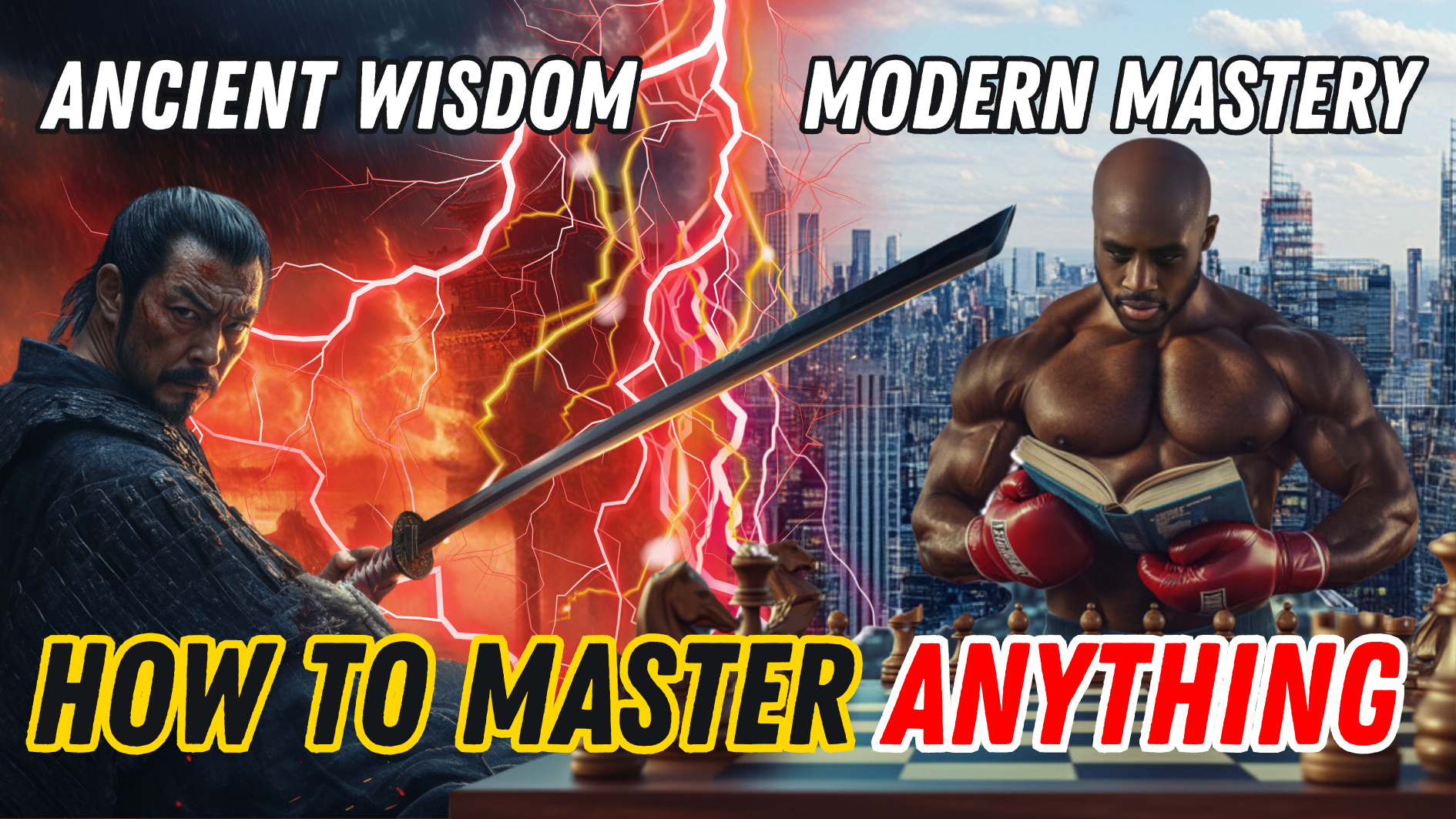The main idea of the Tao Te Ching (also known as Dao De Jing) is to live in harmony and peace. No matter what your craft, vocation, or lifestyle, the wisdom from this 6th century BC Chinese classic can be applied to help you live a life in sync with the universe. This makes sense, as this book and the Zhuangzi are considered the fundamental texts of philosophical and religious Taoism.
Taoism is the idea that everything in the world stems from the “Tao”. Tao (道; dào means “way”, but can also be interpreted as road, channel, path, doctrine, or line. All of these interpretations carry the same meaning:
The combination of yin and yang principles and signifying the way, or code of behavior, is in harmony with the natural order. The interpretation of Tao in the Tao te Ching developed into the philosophical religion of Taoism.
The creation of the book is often credited to Lao Tzu (also rendered as “LaoZi” 老子). The name roughly translates into “Old master”. While it’s not certain what his real name is, the title of Lao Tzu is given as an honorific and to show respect for his wisdom.
The following are some of the most impactful quotes and ideas I collected from the Tao Te Ching, along with commentary where appropriate. I group the ideas by the themes I found most useful and interesting.
With that said, I couldn’t possibly do a book like the Tao Te Ching justice, so I strongly recommend you grab a copy for yourself. It’s a short read, full of practical wisdom.
Note on wording: The Tao Te Ching is originally written in Chinese, therefore the wording of many of the quotes will differ, depending on the version that you read. The version I used was translated by Brian Browne Walker.
Tao Te Ching Quotes on non-attachment
The Tao Te Ching has several ideas that train you to let go of your thoughts and ideas. Taoists believe that the only way to exist peacefully in the world is to take things the way things are. The idea of non-attachment is contrary to a lot of western thought, but it is essential to Taoist teaching. Non-attachment is simply accepting the world as it is and recognizing that nothing is permanent. It occurs when you stop thinking and merely are. Then, the natural conclusion is to not let anything disturb your emotional center because it will all change.
When nothing disturbs your emotional center, this is true power.
- Heaven and Earth are not sentimental; they regard all things as dispensable. The sage isn’t sentimental, either; He views all forms as ephemeral and transitional.
- Line your home with treasures and you won’t be able to defend it. Amass possessions, establish positions, display your pride: Soon enough disaster drives you to your knees.
- Favor and disgrace are equally problematic. Hope and fear are phantoms of the body.
- Be done with knowing and your worries will disappear. How much difference is there between yes and no? How much distinction between good and evil? Fearing what others fear, admiring what they admire – nonsense.
- Looked at but not seen, listened to but not heard, grasped for but not held, formless, soundless, intangible: the Tao resists analysis and defies comprehension.
####
Tao Te Ching Quotes on wisdom
Wisdom is not only the byproduct of experience but also the byproduct of time. You have to go through something, reflect on it, and then assimilate it into your daily existence. This is why most societies naturally have respect for their elder population. Even if an old person isn’t trying to acquire wisdom, they will naturally accumulate it by virtue of living.
In this way, ordinary people can develop extraordinary wisdom as a result of simply surviving. Of course, the Taoists laid out a path for living they believe can turn anyone into a wise man or woman.
- The wise person acts without effort and teaches by quiet example. He accepts things as they come, creates without possessing, nourishes without demanding, and accomplishes without taking credit. Because he constantly forgets himself, he is never forgotten.
- In the same way, the wise person puts himself last, and thereby finds himself first; Holds himself outside, and thereby remains at the center; Abandons himself, and is thereby fulfilled.
- Knowing others is intelligence; knowing the self is enlightenment. Conquering others is power; conquering the self is strength.
- A truly good person doesn’t dwell on her goodness. Thus she can be good. A person of false goodness never forgets her goodness. Thus her goodness is always false. A truly good person does nothing, yet nothing remains undone. A person of false goodness is forever doing, yet everything remains forever undone.
- Those who are courageous out of daring are killed. Those who are courageous out of love survive.
Learn from more books in less time with Shortform

I don’t normally think you should read the summary instead of the entire book, but Shortform has completely changed my mind.
Their summaries are high-level works of art, complete with commentary and additional insights to help you bridge together information and concepts presented in the books.
But that’s not even the best part…
Each summary has an audio version so that you can listen on the go. You’re able to enjoy the summaries the same way you enjoy your favorite podcast! And they cost less than you’d spend on just one book.
Save time and money with Shortform. Use the link below to save 20%
Check out Shortform!Tao Te Ching Quotes on self-improvement
The idea of self-improvement is that you take it upon yourself to make positive changes in your life that dramatically alter it, especially quantitative and independently observable change. Something that many people don’t realize is that self-improvement is incredibly rare. Most people reach a point where society stops imposing conditions for advancement, and thus they stop advancing.
These Lao Tzu quotes are not explicitly about self-improvement, but the ideas apply to them. Ultimately, the goal of self-improvement is to become the master of a specific domain or area of your life. You can become the master of your health, finances, relationships, spirituality, etc.
It doesn’t mean you’re the best in the whole world. It only means that you’ve reached a level where that specific area is no longer a problem for you. Lao Tzu has a few true words that speak to the approach required to reach this level of living.
- In living, choose your ground well. In thought, stay deep in the heart. In relationships, be generous. In speaking, hold to the truth. In leadership, be organized. In work, do your best. In action, be timely. If you compete with no one, no one can compete with you.
- A good runner leaves no tracks; A good speaker makes no slips; A good planner doesn’t have to scheme. The best lock has no bolt, and no one can open it. The best knot uses no rope, and no one can untie it.
- In the pursuit of learning, every day something is added. In the pursuit of Tao, every day something is dropped.
- The sage understands that everything is difficult and thus in the end, has no difficulties
Tao Te Ching Quotes on leadership
It’s no surprise that Lao Tzu—the founder of Taoism—has insights into what it takes to be a good leader. I thought these quotes complement some of the ideas I’d read on leadership in The Art of War and The Hagakure.
Lao Tzu has a reverence for good teaching and leadership qualities. There is also an emphasis on leading by example. He understands a fundamental truth about people and the world; you get back what you put out.
- The best leader is one whose existence is barely known. Next best is one who is loved and praised. After that, one who is feared. Worst of all is a leader who is despised.
- If you fail to trust people, you won’t inspire their trust.
- A man who justifies his actions isn’t respected. A man who boasts of his achievements has no merit. A man who brags will not endure.
- What is a good man but a bad man’s teacher? What is a bad man but a good man’s charge?
- A good general doesn’t show off his power. A good warrior doesn’t get angry. A good conqueror doesn’t attack people. A good employer puts himself below his employees. This is called the power of non-contention. This is called using the strength of others. This is called perfect emulation of heaven.




